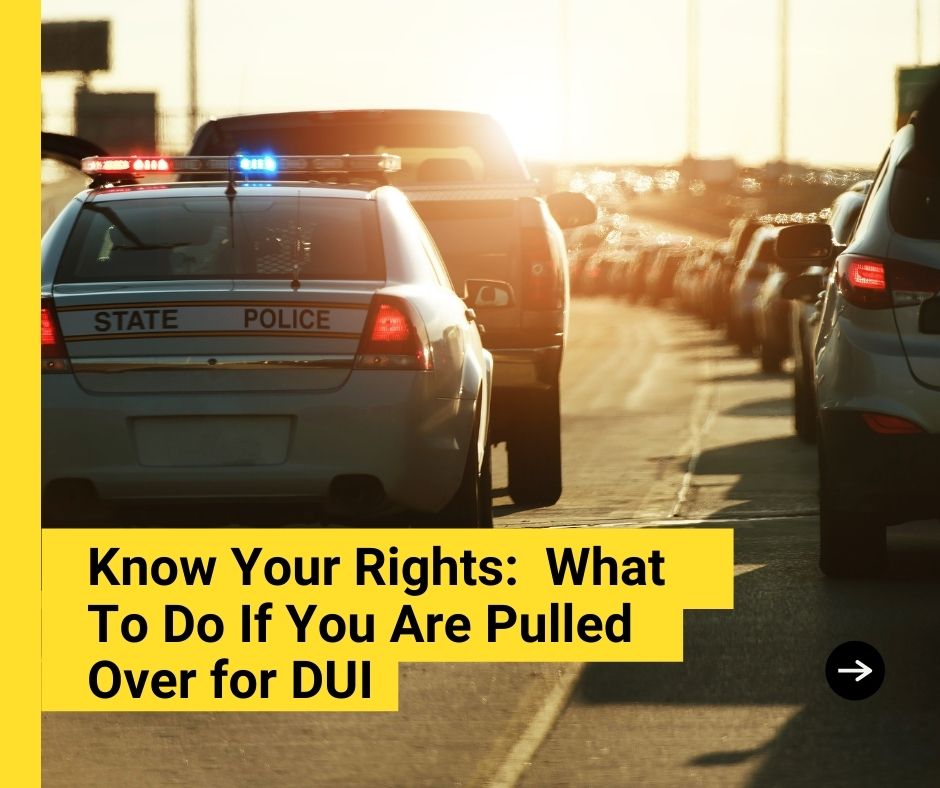What was once merely fodder for movies and TV shows has since evolved into the subject of national headlines: traffic stops gone awry. This raises the question of what you should and should not do if you are pulled over. Knowing your rights under Georgia law can be the difference between having an uneventful police encounter and making headline news. One of the most elementary of these protections is the right to be free from arbitrary traffic stops. This means that an officer cannot pull you over based on a mere hunch rather than some actual observed traffic or criminal violation or other legally justified cause.
What to do if you are pulled over
First and foremost, you should pull over and be polite and respectful…which does not mean talkative. If asked, provide the officer with your license, proof of insurance, and vehicle registration. Other than answering basic questions about your personal information, you should not engage in any unnecessary conversations with the officer.
You will likely also be asked questions about where you are coming from and your activities from the evening. Though these questions may sound harmless, your response could provide the officer with a reason to detain you longer, and the longer you are detained, the more likely it is that you will be arrested. Police officers are trained to look for signs of drug and alcohol impairment or other indicators that you may be hiding something.
Giving long explanations or stories may also allow the officer to attempt to point to your manner of speech as a clue that you are impaired. Moreover, the less you say, the less noticeable any speech patterns you may have. Under no circumstances should you admit to consuming alcohol or describe how many drinks you’ve had.
Field Sobriety Tests
If the encounter progresses beyond the initial questioning stage, the officer may ask if you will submit to field sobriety testing. You should NOT consent to participate in these evaluations—even if you have had little to nothing to drink. Field sobriety tests are designed for you to fail, and to allow the investigating officer(s) to continue detaining you to obtain additional evidence to use against you in a subsequent prosecution.
Chemical Tests – Blood, Breath, or Urine
If you are officially placed under arrest for a suspected DUI, the arresting officer must read you the Georgia implied consent warning, requesting you submit to the State-administered test of your blood, breath, or urine. You should not consent to any request for test samples, especially if you have consumed ANY amount of alcohol, prescription, or non-prescription drugs—whether legally or illegally. This includes the roadside preliminary breath test (PBT).
By refusing to submit to any State tests, you may weaken any potential case the State may have against you. The prosecutor will be forced to rely on other evidence of impairment to prove that you were under the influence. However, the overall impact of your refusal depends largely on the additional facts of your case and whether evidence exists that the prosecutor may introduce to establish impairment. This includes slurred speech, repeat questions when talking to the officer, your performance on the field sobriety tests and more.
Ask for an Attorney
If you are arrested and taken into custody for a DUI, request to speak to an attorney as soon as possible. Even if your request is not granted, you will preserve this fact in the record for later use in litigation. Do not make any statements other than your request to speak with an attorney. You should also be aware that most police cars now make audio and video recordings of you during your transport to the jail, which may also be brought in and used against you as evidence by the prosecutor.
Because Georgia DUI laws are constantly changing, you need to speak with an attorney who specializes in DUI defense and who can provide you with strategic and valuable insight into the strengths and weaknesses of your case. I have successfully defended hundreds of clients facing DUI charges, and in countless jurisdictions around the State. I would be happy to speak with you regarding your options, call today for a free case evaluation.
Resources
While this isn’t Georgia-specific advice, if you want to learn more about your rights, check out the ACLU’s article on this subject here: https://www.aclu.org/know-your-rights/stopped-by-police/#ive-been-pulled-over-by-the-police

